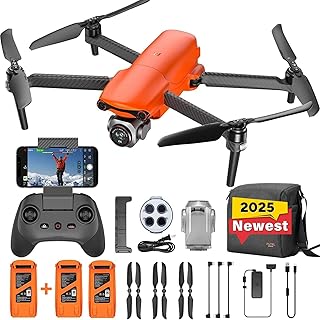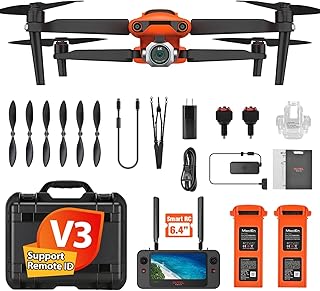Autel Drone Laws and Regulations: A Comprehensive Overview
Autel drones, like any other unmanned aerial vehicles (UAVs), are subject to a complex web of laws and regulations that vary depending on your location and intended use. Here's a breakdown of the key factors you need to consider:
1. Federal Regulations (United States):
* Federal Aviation Administration (FAA): The FAA has primary authority over all drone operations in the US.
* Registration: All drones weighing over 0.55 lbs (250 grams) must be registered with the FAA. You can register online at the FAA website and receive a unique registration number.
* Remote Pilot Certificate (Part 107): If you intend to fly your drone for commercial purposes, you'll need to obtain a Remote Pilot Certificate. This requires passing an exam and meeting certain requirements.
* Operating Restrictions: The FAA has established specific operating restrictions for drones, including:
* Maximum altitude: 400 feet AGL (above ground level).
* Visual line of sight: You must maintain visual contact with your drone at all times.
* Flight over populated areas: Restrictions apply in congested areas and around airports.
* Nighttime operations: Limited and require additional certifications.
2. State and Local Regulations:
* State Laws: Many states have their own drone regulations, often focusing on areas not covered by federal law, like privacy, trespassing, and wildlife protection.
* Local Ordinances: Cities and counties can also establish their own drone regulations, which may be more restrictive than state or federal laws.
* Specific Regulations: Be sure to research and follow any specific regulations applicable to your area, including national parks, wildlife refuges, and other sensitive locations.
3. International Regulations:
* International Civil Aviation Organization (ICAO): Provides guidelines and standards for drone operations worldwide.
* Country-Specific Regulations: Every country has its own drone laws, which can be significantly different from those in the US. You need to research and comply with the regulations of the specific country you're flying in.
4. Autel Drone-Specific Regulations:
* Autel App and Software: Autel drones often come equipped with software and apps that may incorporate some safety and regulatory features.
* Manufacturer's Guidelines: Consult the Autel user manual and website for additional guidance on safe and legal drone operation.
5. Best Practices for Responsible Drone Operation:
* Be aware of your surroundings: Avoid flying near airports, emergency response areas, and other sensitive locations.
* Respect privacy: Do not fly your drone over private property without permission.
* Follow ethical guidelines: Use your drone responsibly and avoid causing any harm or distress to others.
6. Resources for Further Information:
* FAA website: [https://www.faa.gov/uas](https://www.faa.gov/uas)
* Autel Robotics website: [https://www.autelrobotics.com/](https://www.autelrobotics.com/)
* Drone Law Blog: [https://www.dronelife.com/](https://www.dronelife.com/)
Remember: Always stay informed and follow all applicable laws and regulations to ensure safe and responsible drone operation.


